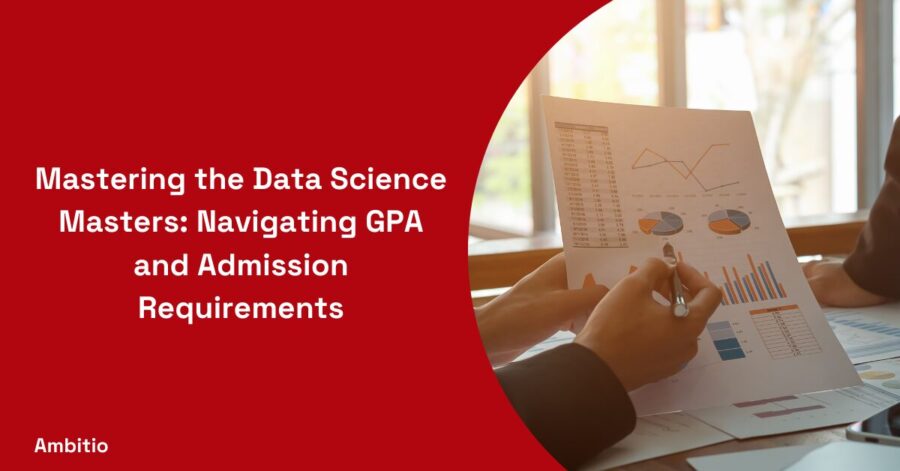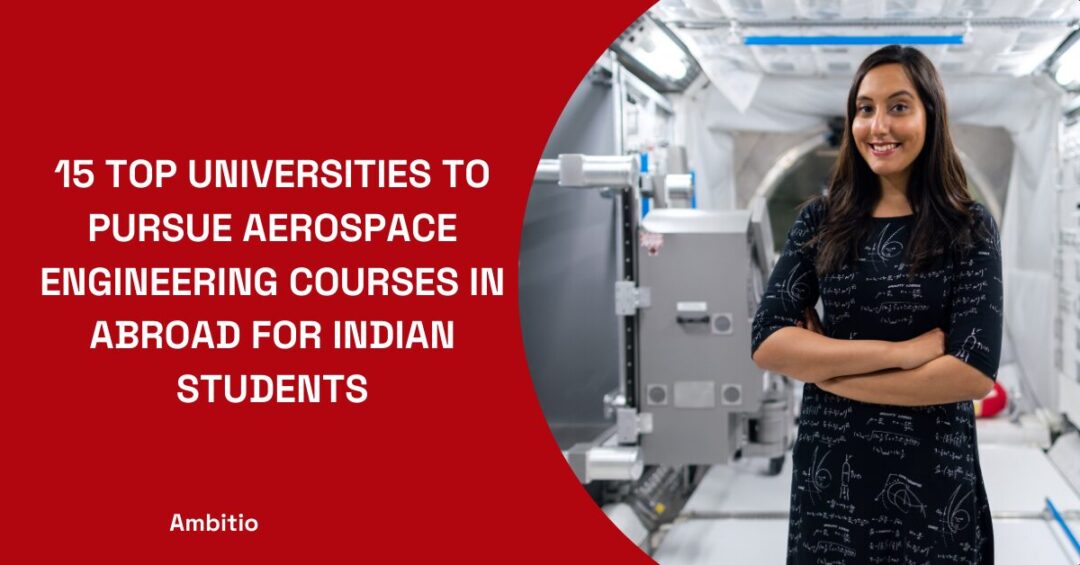12 December 2024
4 minutes read
Mastering the Data Science Masters: Navigating GPA and Admission Requirements

Understanding the Admission Landscape for a Master of Science in Data Science
Embarking on a Master of Science (M.S.) in Data Science journey demands a clear understanding of the admission process, particularly the GPA requirements.
This comprehensive guide will navigate you through the intricacies of GPA criteria, additional prerequisites, and strategies to bolster your application.
The Criticality of Undergraduate GPA in Data Science M.S. Admissions
Unpacking the GPA Expectations
The GPA is a pivotal factor in data science M.S. admissions, serving as a benchmark of your academic prowess and dedication. Most data science graduate programs set the bar at a minimum undergraduate GPA of 3.0.
However, the competitiveness of top-tier programs often nudges this expectation towards a near-perfect 4.0. This requirement underscores the rigorous nature of data science education, which encompasses complex subjects such as analytics, machine learning, and big data.
Navigating Lower GPA Challenges
If your undergraduate GPA doesn’t quite meet the typical requirements for a data science Master’s program, there are several strategies you can employ to enhance your application:
- Showcase Relevant Work Experience:
- Demonstrate your expertise through your professional experience in data science or related fields.
- Highlight any significant projects, achievements, or advancements you contributed to in your role.
- Undertake Additional Coursework:
- Enroll in relevant courses, especially in areas like statistics, programming, or machine learning, to show your commitment to improving your knowledge base.
- Consider accredited online courses or certificate programs that can add academic weight to your application.
- Pursue Certification in Key Skills:
- Obtain certifications in critical data science skills such as Python, R, SQL, or machine learning.
- Platforms like Coursera, edX, or Udacity offer courses directly relevant to data science.
- Engage in Independent Projects:
- Work on personal or open-source projects that demonstrate your practical skills.
- Create a portfolio showcasing these projects, including any data analysis, predictive models, or visualizations you’ve developed.
- Excel in Standardized Tests (if required):
- Prepare rigorously for the GRE or other relevant standardized tests to achieve high scores, compensating for a lower GPA.
- Focus on sections of the test that are particularly relevant to data science, like quantitative reasoning.
- Obtain Strong Letters of Recommendation:
- Secure recommendations from professionals or academics who can attest to your data science capabilities and potential for success in graduate studies.
- Ensure these letters provide a comprehensive view of your skills, work ethic, and accomplishments.
- Craft a Compelling Personal Statement or Statement of Purpose:
- Use your personal statement to explain the context of your GPA, if necessary.
- Articulate your passion for data science, your career goals, and how the Master’s program aligns with these objectives.
- Highlight Non-Academic Achievements:
- Include any relevant extracurricular activities, volunteer work, or internships that demonstrate your leadership, problem-solving skills, or commitment to the field of data science.
- Include any relevant extracurricular activities, volunteer work, or internships that demonstrate your leadership, problem-solving skills, or commitment to the field of data science.
- Discuss Continuous Learning and Improvement:
- Show your commitment to self-improvement and lifelong learning, indicating how you’ve grown since your undergraduate studies.
- Show your commitment to self-improvement and lifelong learning, indicating how you’ve grown since your undergraduate studies.
- Consider Explaining GPA Circumstances (if applicable):
- If there were extenuating circumstances that affected your undergraduate GPA, such as personal or health issues, consider addressing them succinctly and focus on how you overcame these challenges.
- If there were extenuating circumstances that affected your undergraduate GPA, such as personal or health issues, consider addressing them succinctly and focus on how you overcame these challenges.
By focusing on these areas, you can build a well-rounded application that highlights your strengths and compensates for a lower undergraduate GPA, showcasing your potential as a successful data science Master’s candidate.
Beyond GPA: Holistic Application Review
The Importance of a Well-Crafted Personal Statement and Statement of Purpose
Admissions committees often adopt a holistic approach, considering various elements of your application. Your personal statement and statement of purpose are critical components where you can articulate your passion for data science.
These narratives should reflect your academic journey, professional aspirations, and how the M.S. program aligns with your career objectives.
A compelling story, combined with a clear demonstration of your skills and experiences, can significantly influence the admission decision.
Leveraging Professional Experience and Extracurricular Activities
Your professional background and extracurricular activities offer a window into your practical skills and dedication to the field of data science.
For applicants with a lower GPA, showcasing a strong professional trajectory in data analytics, machine learning, or related fields can be particularly influential.
Participation in data science competitions, hackathons, or contributing to open-source projects can also add substantial weight to your application.
The Role of Standardized Tests in Data Science Admissions
Deciphering the Relevance of GRE Scores
While some data science M.S. programs still require GRE scores, the trend is shifting. Many institutions are now focusing more on relevant experience and skills.
However, a high GRE score can be advantageous, especially for candidates with an undergraduate GPA on the lower end. It’s essential to research the specific requirements of your target programs and prepare accordingly.
English Proficiency Tests for International Students
For international applicants, English proficiency tests like TOEFL or IELTS are often mandatory. These scores not only fulfill admission requirements but also demonstrate your ability to thrive in an English-speaking academic environment.
Achieving a high score in these tests can complement your application, especially if you’re applying from a non-English speaking background.
The Expanding Horizon of Data Science Education
The Rise of Online and Part-Time Programs
The field of data science education is evolving, with an increasing number of institutions offering online and part-time M.S. programs. These flexible formats are ideal for working professionals and those who require a balance between education and other commitments.
They also tend to have slightly different admission criteria, often placing less emphasis on GPA and more on professional experience and specific skill sets.
MOOCs and Continued Learning in Data Science
Massive Open Online Courses (MOOCs) have become a game-changer in data science education. Completing relevant MOOCs can not only help you bolster your technical skills but also demonstrate your commitment to continuous learning.
Many admissions committees view MOOC certifications favorably, especially when they supplement an applicant’s educational background or professional experience in the field of data science.
Conclusion
Securing admission to a Master’s program in Data Science is a multifaceted process, where your GPA is just one piece of the puzzle. Demonstrating a blend of academic achievement, practical skills, and a clear vision for your data science career is key.
With thorough preparation and an understanding of what admissions committees are looking for, you can pave your way to a successful and fulfilling career in the ever-evolving world of data science.
Frequently Asked Questions by Prospective Data Science M.S. Students
Can I apply to a data science M.S. program with a non-CS background?
Absolutely. Many programs welcome diverse academic backgrounds, provided you have a strong quantitative foundation. Supplementing your education with relevant courses or experience in programming, statistics, or machine learning is beneficial.
What kind of support is available for students with an insufficient background in data science?
Most programs offer foundational courses for those new to the field. Additionally, mentorship, tutoring, and collaborative projects can help bridge any knowledge gaps.
How important are recommendations in the application process?
Letters of recommendation are crucial. They provide insight into your academic capabilities, work ethic, and potential as a data scientist. Select recommenders who know you well and can vouch for your qualifications and dedication to the field.

You can study at top universities worldwide!
Get expert tips and tricks to get into top universities with a free expert session.
Book Your Free 30-Minute Session Now! Book a call now




























